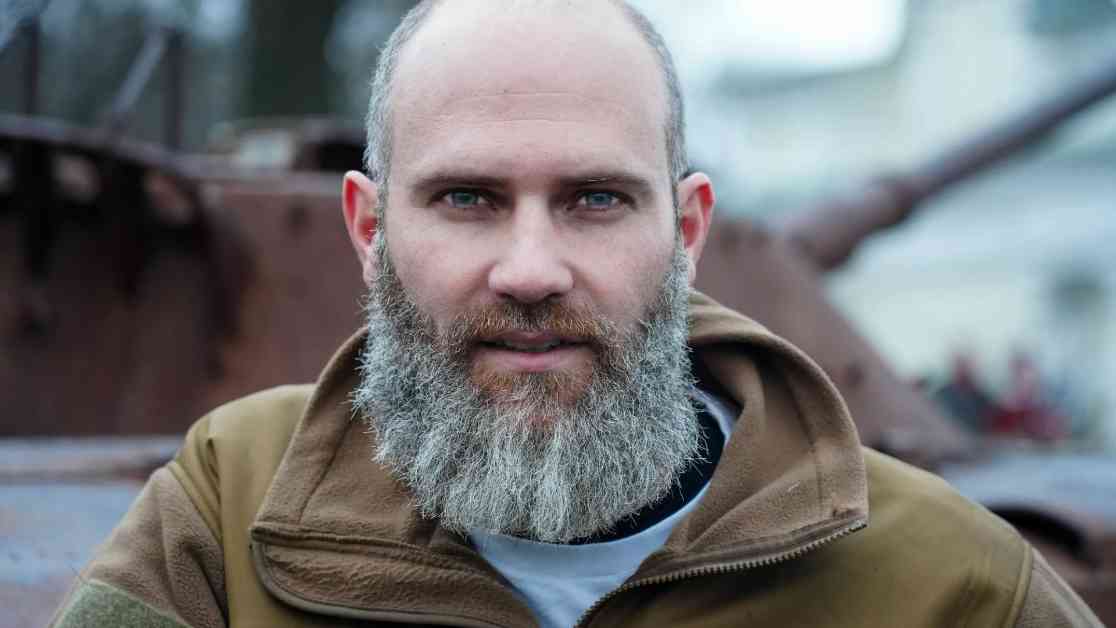Macer Gifford, a former banker from the UK, embarked on a daring mission in Ukraine’s No Man’s Land to gather intelligence on Russian soldiers. Crawling into the enemy’s trench under the cover of darkness, his heart raced as he swiped a radio and vital documents, hoping to evade capture. However, his heart sank as he heard the dreaded cry of a Russian soldier signaling their presence and imminent danger.
The situation quickly escalated into a harrowing firefight, with bullets raining down on Macer and his Ukrainian comrades as they lay low, praying for survival. The intensity of machine gun fire and grenades left them vulnerable, with Macer reflecting on the precariousness of their situation. Amid the chaos, a brief lull in the assault presented their only chance to escape, narrowly avoiding a fatal outcome.
Driven by a sense of duty and witnessing the horrors of Russian aggression in Ukraine, Macer transitioned from providing humanitarian aid to actively joining the fight against Putin’s forces. His experiences in Syria battling ISIS prepared him for the atrocities committed by Russian soldiers in Ukraine, fueling his resolve to confront those responsible for the devastation.
Transitioning from intelligence gathering to direct combat in key strategic locations, Macer’s unit faced relentless bombardment and fierce resistance from elite Russian forces. The shift in battlegrounds, from the fields between Mykolaiv and Kherson to the islands of Dnipro and the forests of Lyman, presented new challenges and dangers. Engaging in small team operations, they navigated hostile terrain, evading drones and engaging in intense skirmishes.
The creation of an elite UAV unit within the 131st battalion marked a turning point, allowing Macer and his team to strike Russian targets with precision. Despite facing brutal drone warfare and enduring months of grueling battles, they made significant gains in pushing back Putin’s troops and reclaiming territory. Their efforts culminated in a pivotal moment of liberation, reminiscent of historic conflicts, as civilians greeted them with tears of relief and gratitude.
Reflecting on the profound impact of his experiences in Ukraine, Macer emphasized the urgent need for Western support to counter Putin’s aggression and prevent further escalation. He underscored the global implications of the conflict, warning of a looming Third World War and advocating for decisive action to confront the axis of oppressive regimes threatening peace and stability.
As Macer returned home to the UK, his mission in Ukraine left an indelible mark on his life, prompting him to reassess the complexities of war and the moral imperative to stand against injustice. His journey from a banker to a frontline fighter epitomized the courage and resilience of those who choose to confront tyranny and defend freedom, even at great personal cost.
In conclusion, Macer’s story exemplifies the human toll of conflict and the enduring struggle for justice in the face of tyranny. His experiences in Ukraine shed light on the harsh realities of war, the sacrifices made by individuals like him, and the urgent need for international solidarity in the fight against aggression and oppression.





















